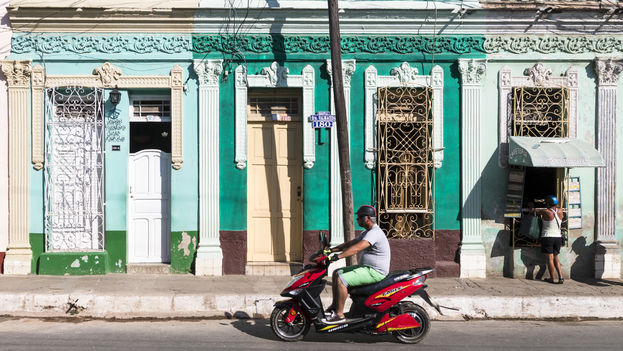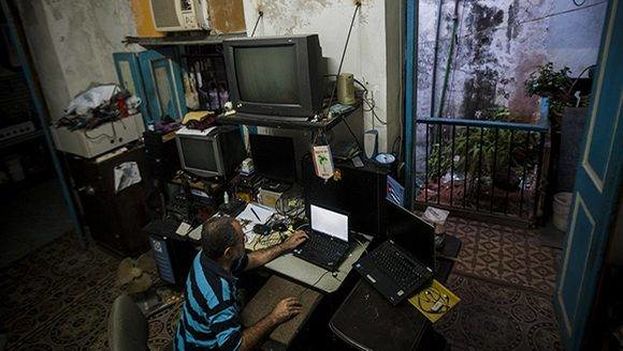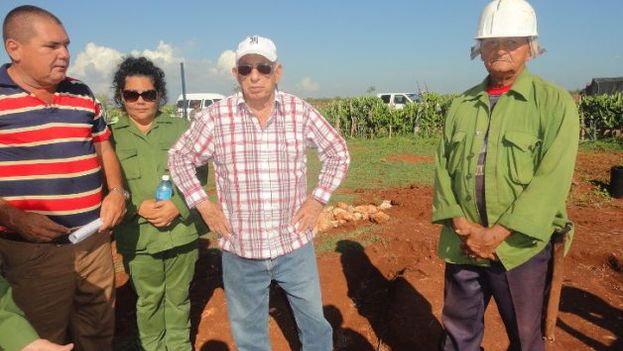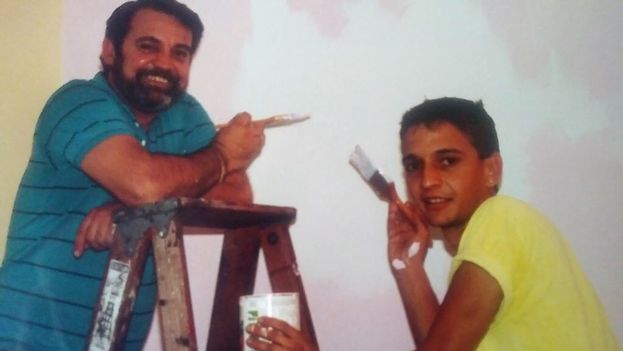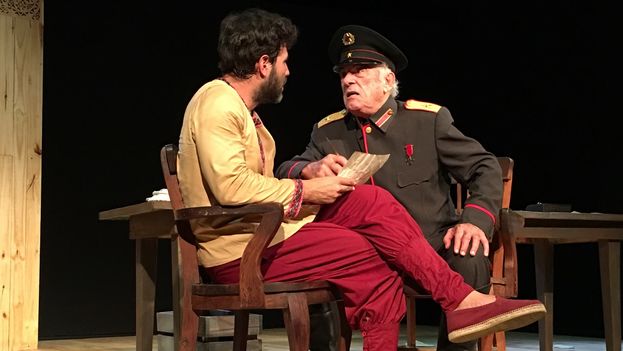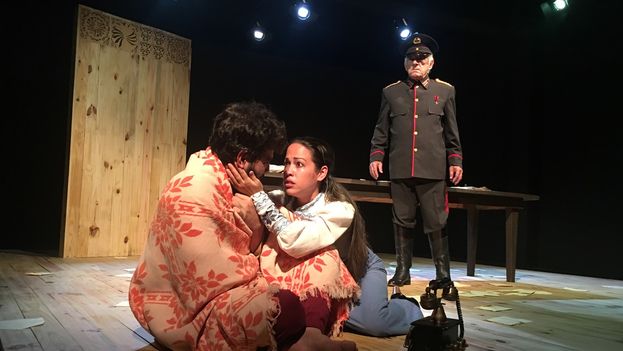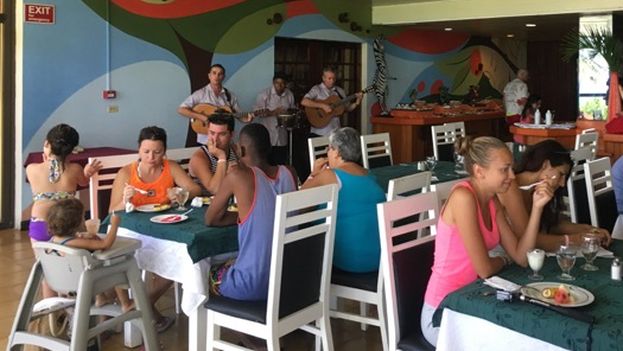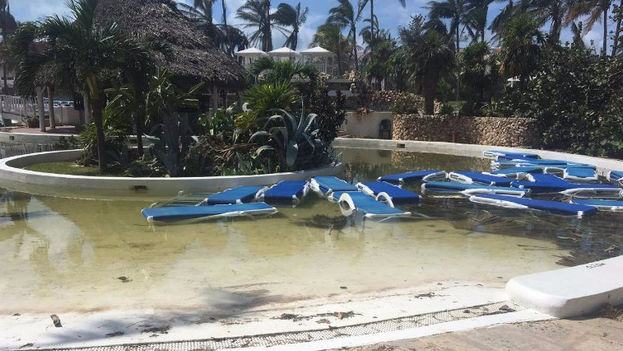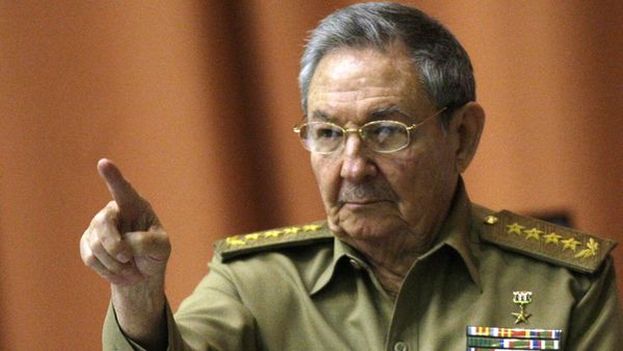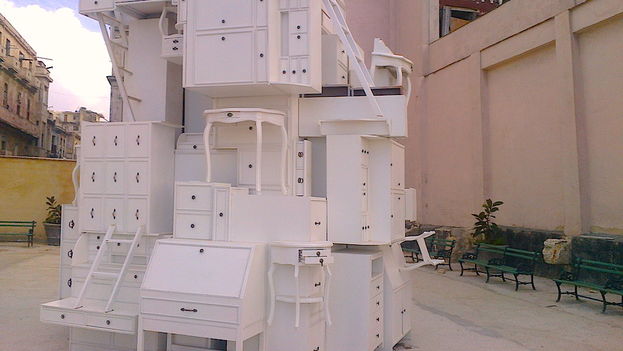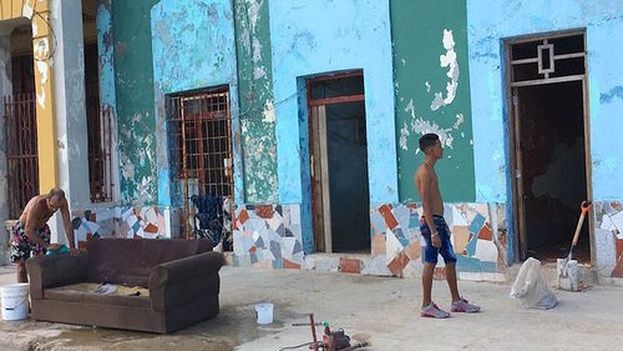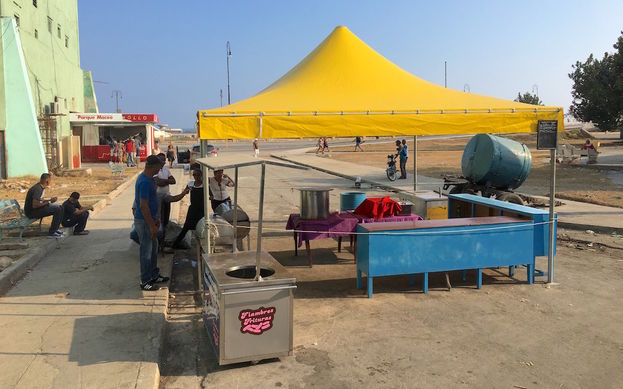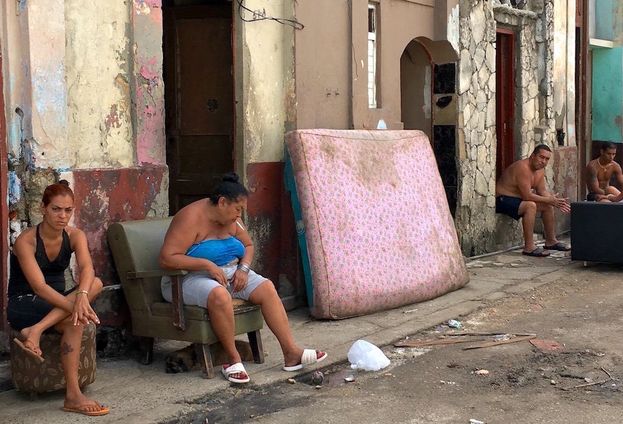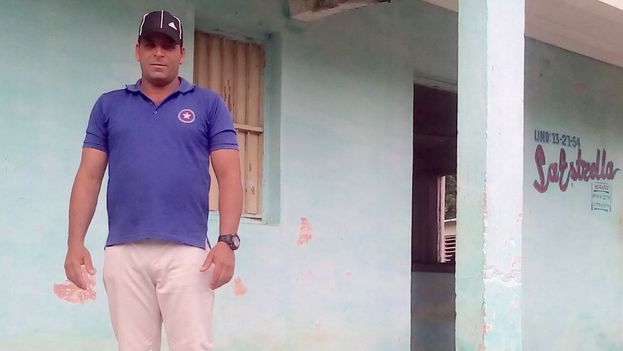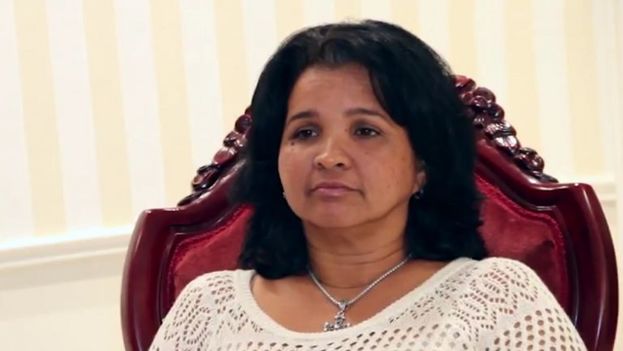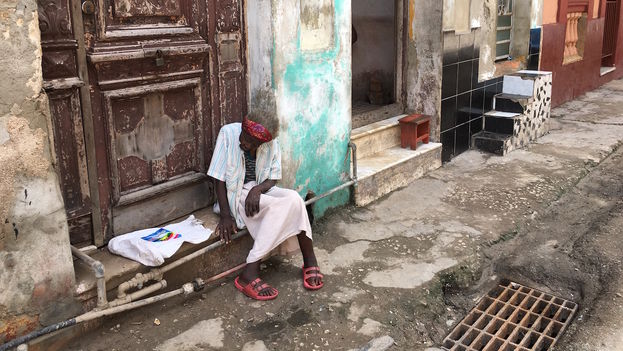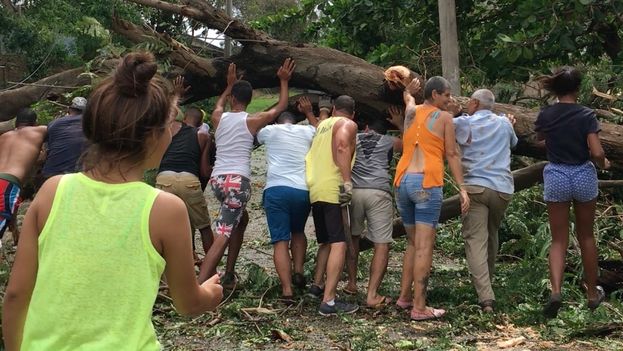
![]() 14ymedio, Zunilda Mata, Havana, 27 September 2017 – Three families are now bathing in Bernardina’s shower. “Everyone brings their own soap but the water is for everyone,” says the 86-year-old woman at her house on Calle Campanario in Havana. After Hurricane Irma the retiree opened her doors to her most affected neighbors, a gesture that is repeated throughout the country.
14ymedio, Zunilda Mata, Havana, 27 September 2017 – Three families are now bathing in Bernardina’s shower. “Everyone brings their own soap but the water is for everyone,” says the 86-year-old woman at her house on Calle Campanario in Havana. After Hurricane Irma the retiree opened her doors to her most affected neighbors, a gesture that is repeated throughout the country.
The official press has been full of headlines about international donations and the state’s work to accelerate the recovery, but the most important aid is being offered by citizens themselves. From the first minute, neighbors, family members and activists turned their energies to helping the most damaged communities.
Since the first winds began to blow and some municipalities on the north coast were almost completely evacuated, civil and spontaneous relief meant the difference between life and death for thousands of people. More than 77% of those sheltered took refuge in the homes of relatives or acquaintances, according to official data. continue reading
The close neighborly relations that characterize most Cuban neighborhoods are even more intense in small settlements and were very effective in protecting private property and avoiding a greater number of deaths.
“They talk about the great hell of small towns, but here what saved us is that we all know each other well and we are like a family,” says Yania, who lives in the historic center of Caibarién and whose home was badly damaged by the winds.
“We went to the house next door and all that’s left of ours is only part of a room,” laments the young woman. Now, she is waiting for international donations and the aid promised by the government to subsidize 50% of the materials needed for the reconstruction of housing, but at least she already has assistance she can count on: “The neighbors will help us to raise the walls.”
In the East, the outlawed Cuban Patriotic Union (UNPACU) is looking for strategies to prevent its aid initiatives from being boycotted. “We suffered a lot of persecution when we wanted to help the victims of Hurricane Matthew in Baracoa,” remembers the leader of the organization, José Daniel Ferrer.
Now, with the passage of Irma, “we are looking for mechanisms, with the utmost discretion, to see how to channel our help to these people,” says the former political prisoner. “Steps have been taken, such as sending money to affected activists to buy batteries, potable water and other things.”
On Tuesday, the official media opened several bank accounts directed to residents on the island for “solidarity contributions to help victims of Irma.” Enabling this type of aid came ten days after the International Financial Bank did something similar to “channel donations” from abroad.
The rapidity in requesting cooperation from other nations and the delay in accepting local donations has generated displeasure among many. The state-run newspaper Granma recognizes this situation by suggesting between the lines that the opening of bank accounts was done after Cuban citizens “manifested their solidarity interest in making monetary contributions.”
The Catholic Church has also tried to channel these desires to help coming from regions where the inhabitants were not seriously affected. In the first 72 hours after the hurricane, Caritas Cuba set up an emergency network to provide relief to the most affected and disadvantaged people. To achieve this, countless volunteers, parishioners and residents have worked in those parts of the country.
In the Havana office of the organization it’s a hectic time. The phones don’t stop ringing with calls from people who have lost everything or almost everything. Julian Rigao tries to deal with all these requests and explains that in every neighborhood in the capital there is a chapel where people can “leave donations.” Then the parish priests and religious congregations “will send them to the Archbishopric.”
In Catholic parishes a survey has been distributed to uncover the most critical cases. Since Monday, September 18, some churches, such as the Sacred Heart on Linea Street, are preparing breakfasts and dinners to help the most unprotected people in their community, according to a report.
Protestants are also collecting donations. In the Upper Room Baptist temple on centrally located Carlos III street, help is received “until three-thirty in the afternoon,” says Svan, who works in the temple. “It may come in a bag, in a cardboard box or however they’ve packed it.”
Little by little, people are also coming to donate mainly clothing, footwear and household goods. On the other hand, the state’s mass organizations, such as the Committees for the Defense of the Revolution and the Federation of Cuban Women, have not put out any appeals to raise donations.
“In my house we have prepared several bags with women’s and baby clothes”, says Lilian Bosque, a resident of Colon Street in the Plaza of the Revolution district. Now, she hopes to “put them together with what other neighbors have gathered and take them to the Santa Rosa de Lima chapel near here.”
Bosque is aware that “this is not going to solve the problem, but at least it will alleviate the situation of families who have been left with nothing,” and she points out that it is a silent gesture without the intention of receiving any recognition. “No one wants to earn a diploma with this or have it appear in Granma, it is the help that any human being in these situations needs.”


